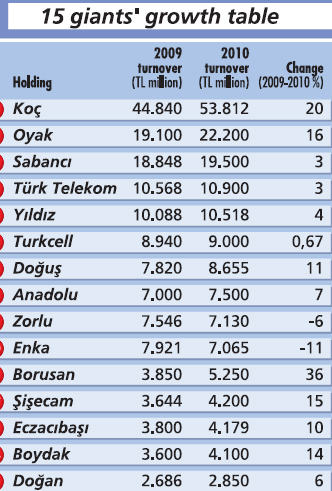
-
BIST 100
 11286,81%-0,55En Düşük11250,46En Yüksek11364,52
11286,81%-0,55En Düşük11250,46En Yüksek11364,52 -
DOLAR
 42,72%0,01Alış42,7187Satış42,7287En Yüksek42,7326
42,72%0,01Alış42,7187Satış42,7287En Yüksek42,7326 -
EURO
 50,17%-0,04Alış50,1690Satış50,1720En Yüksek50,1963
50,17%-0,04Alış50,1690Satış50,1720En Yüksek50,1963 -
EUR/USD
 1,17%0,03Alış1,1742Satış1,1745En Yüksek1,1745
1,17%0,03Alış1,1742Satış1,1745En Yüksek1,1745 -
ALTIN
 5959,29%-0,06Alış5958,60Satış5959,99En Yüksek5968,75
5959,29%-0,06Alış5958,60Satış5959,99En Yüksek5968,75
-
BIST 100
 11286,81%-0,55En Düşük11250,46En Yüksek11364,52
11286,81%-0,55En Düşük11250,46En Yüksek11364,52 -
DOLAR
 42,72%0,01Alış42,7187Satış42,7287En Yüksek42,7326
42,72%0,01Alış42,7187Satış42,7287En Yüksek42,7326 -
EURO
 50,17%-0,04Alış50,1690Satış50,1720En Yüksek50,1963
50,17%-0,04Alış50,1690Satış50,1720En Yüksek50,1963 -
EUR/USD
 1,17%0,03Alış1,1742Satış1,1745En Yüksek1,1745
1,17%0,03Alış1,1742Satış1,1745En Yüksek1,1745 -
ALTIN
 5959,29%-0,06Alış5958,60Satış5959,99En Yüksek5968,75
5959,29%-0,06Alış5958,60Satış5959,99En Yüksek5968,75
- Anasayfa
- Haberler
- Tüm Haberler
- Double digit calculations in growth
Double digit calculations in growth
The Turkish economy contracted by 4.7 percent during the crisis year of 2009.
1.06.2011 00:00:000


2010 was a year of recovery. The economy exceeded expectations by growing by 8.9 percent. In this environment, the giant groups which drive the economy recorded significant growth. 25 of the 32 largest groups in Turkey succeeded in increasing their turnover. 15 of these posted double digit growth. That is to say, 2010 really was a year of recovery for the giants. The crisis mentality has been left behind and everyone is targeting growth in 2011. Almost everyone is looking for new sectors, new investments, privatisations and regional opportunities...
THE SECTORS THAT DRIVE GROWTH
For many holdings, 2010 was a year of returning to growth. Many of the giants closed the year with growth in excess of 10 percent. Those who recorded the best performance in terms of turnover were dominated by groups active in the automotive, iron and steel and energy sectors. There is no doubt that the fact that the automotive sector grew by 40 percent, the flat steel sector by 33 percent and the steel piping sector by 17 percent made an important contribution to this growth. Koç Holding increased its turnover by 20 percent to $53.8 billion and thus left all of its rivals with a gap that will be difficult to close. One of the other groups that posted double digit growth was Doğuş Holding. Group CEO Hüsnü Akhan says that they recorded growth of 11 percent to take their turnover to TL 8.6 billion in 2010, and that they achieved growth of 17 percent in the financial sector and 23 percent in the automotive sector. For Borusan Holding, 2010 was a year in which they made significant progress and concentrated on the steel, logistics and energysectors. The holding's turnover rose by 36 percent to TL 5.2 billion.
PROFITABILITY INCREASED
In 2010, the holdings focused on profitability. In many groups, profitability ranked first on their agendas, and it was by concentrating primarily on productivity that they achieved significant increases in profitability. Koç Holding, which had increased its net profits by only 2 percent in 2009, posted a growth in profits of 21 percent in 2010. Koç Holding CEO Turgay Durak says that, in addition to their strong performances in the sectors in which they are active, the reason that they realised their profitability targets was that they implemented projects which cut costs and boosted productivity. There were also those who recorded record increases in profits. Another important detail is that record increases came from Şişecam and Tekfen, which had both seen
profitability decline in 2009. Şişecam experienced a fall of 30 percent in profits in 2009, before recording an increase of 332 percent in 2010, with the result that it ranked first in the list of 17 companies which posted the largest increases in profits.
CONTRACTING BECAME DIFFICULT
It is also striking that most of the groups which recorded a decline in turnover last year were in the contracting sector. Particularly companies which work mostly abroad experienced a contraction in turnover of between 4 and 16 percent. For example, Enka, which is an international construction giant, recorded turnover of TL 7.9 billion in 2009, which declined by 11 percent to TL 7 billion in 2010. Nurol Holding's turnover contracted by 5 percent to TL 950 million in 2010. Turnover at TAV Construction fell by 16 percent to TL 1 billion. Tekfen Holding's turnover declined by 4 percent to TL 2.2 billion. But groups which, unlike other large companies, experienced a decline in turnover are looking to return to growth in the period ahead. In order to achieve this, they are looking in particular at diversifying their markets.~
LOOKING FOR NEW BUSINESS
Groups who find a secure investment environment, and who have an appetite for growth, are looking for opportunities in different sectors. Bilkent Holding is closely following the privatisations of the national lottery, bridges, highways and Galataport and also wants to make investments in attractive-looking areas abroad. Bilkent Holding officials say that they are particularly targeting investments in technology. IC Holding has announced that it is looking to double its turnover in the next five years and planning to enter the health and mining sectors. In terms of new sectors, Boyner Holding is planning to emphasize real estate. It also wants to accelerate growth in retailing through new categories. The holding's board chair Cem Boyner says: "In retailing we shall grow through our new brands and formats for the C segment in particular."
Türkiye ve dünya ekonomisine yön veren gelişmeleri yorulmadan takip edebilmek için her yeni güne haber bültenimiz “Sabah Kahvesi” ile başlamak ister misiniz?






